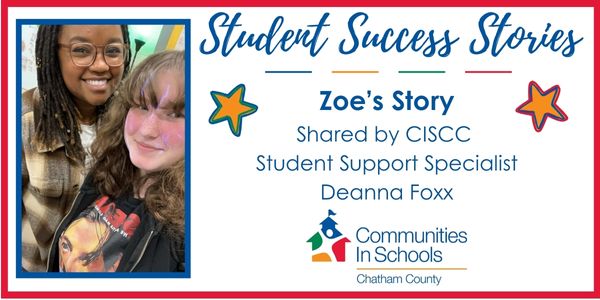
Feb 7, 2024 | Chatham Middle School, Stories, Uncategorized
After nearly a year working with my students at Chatham Middle School, it’s evident that the effort invested in cultivating and nurturing relationships has significantly impacted their success. Zoe initially seemed reserved, not thrilled about my role as someone...
Sep 3, 2018 | Chatham Middle School, Events, News Articles, Stories, Youth
\ Check out Chatham Middle School students on WRAL TV! These students participated in CIS CC’s Cooking Matters program, a collaboration with the Inter-Faith Food Shuttle.
Jun 15, 2018 | Chatham Middle School, News Articles, Stories, Youth
The mission of Chatham County Schools (CCS) is “to graduate globally competitive and confident students by providing a rigorous and relevant curriculum in a supportive, safe and nurturing learning environment.” This is a lofty mission, and it’s difficult to achieve...
Mar 30, 2018 | Chatham Middle School, News Articles, Stories
Erika Guy’s entrée into CISCC came by way of “Challenge Day” held at Chatham Middle School (CMS) in Siler City in October of 2016. The Challenge Day school program provides teens and adults with tools to break down the walls of separation and isolation,...
Mar 8, 2018 | Chatham Middle School, Mentoring, News Articles, Stories
On a cold January morning in 2015, in the middle of the school year, a school bus pulled up to the America’s Best Inn motel in Siler City. It was the first day of school for Kaylin, a new sixth grader at Chatham Middle School whose family had just arrived in...


